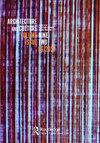从工匠到自动化:21世纪的价值与工艺
IF 1.1
0 ARCHITECTURE
引用次数: 0
摘要
摘要本文关注的是作为21世纪交易现象的当代工艺。它探讨了自动化技术的影响,如激光切割机和机器人技术,认为我们实现自动化的方法自工业革命以来一直没有改变。自动化的实际实施强化了马克思主义的意识形态,即劳动力受到威胁,个人被剥夺了技能。通过将工艺作为个人之间的基本交易活动来关注,这篇文章面对了关于自动化的先入为主的想法。通过维特根斯坦、阿伦特、马克思等一系列理论框架,对劳动、价值、工艺三者之间的关系进行了剖析。通过两个案例研究——一个是借助激光切割机进行设计,另一个是借助工业机器人绘制肖像——作者提出了一种概念上的转变,即从“从”机器生产到“用”机器生产。我在案例研究中使用这种转变来描述接近并最终从机器中回收工艺的流程。本文章由计算机程序翻译,如有差异,请以英文原文为准。
Artisan to Automation: Value and Craft in the 21st Century
Abstract This article focuses on contemporary craft as a transactional phenomenon in the twenty-first century. It explores the influence of automation technology – such as laser-cutters and robotics – arguing that our approach to automation has gone unchanged since the Industrial Revolution. Practical implementations of automation reinforce a Marxist ideology that labor is placed under threat and individuals stripped of skill. By focusing on craft as a fundamentally transactional activity between individuals, the essay confronts preconceived ideas regarding automation. It steps through a series of theoretical frameworks including Wittgenstein, Arendt and Marx to unpack the relationship between labor, value and craft. Using two case-studies – one designing aided by a laser cutter, the other drawing portraiture with an industrial robot – the author offers a conceptual shift from considering production to be “from” machines to production “with” machines. I use this shift within the case-studies to offer a delineation of streams for approaching and ultimately reclaiming craft from machines.
求助全文
通过发布文献求助,成功后即可免费获取论文全文。
去求助
来源期刊

Architecture and Culture
ARCHITECTURE-
CiteScore
0.80
自引率
0.00%
发文量
25
期刊介绍:
Architecture and Culture, the international award winning, peer-reviewed journal of the Architectural Humanities Research Association, investigates the relationship between architecture and the culture that shapes and is shaped by it. Whether culture is understood extensively, as shared experience of everyday life, or in terms of the rules and habits of different disciplinary practices, Architecture and Culture asks how architecture participates in and engages with it – and how both culture and architecture might be reciprocally transformed. Architecture and Culture publishes exploratory research that is purposively imaginative, rigorously speculative, visually and verbally stimulating. From architects, artists and urban designers, film-makers, animators and poets, from historians of culture and architecture, from geographers, anthropologists and other social scientists, from thinkers and writers of all kinds, established and new, it solicits essays, critical reviews, interviews, fictional narratives in both images and words, art and building projects, and design hypotheses. Architecture and Culture aims to promote a conversation between all those who are curious about what architecture might be and what it can do.
 求助内容:
求助内容: 应助结果提醒方式:
应助结果提醒方式:


